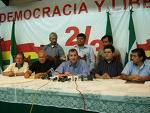
BAN PENALTY SHOOT-OUTS!!
Bring Back The Golden Goal
My worst fears came to pass yesterday.
The European Cup final last night was settled in a dreaded penalty shoot-out.
Manchester United and Chelsea ran themselves to the ground in an action packed 1-1 draw. The players gave their best and played their hearts out. Both teams took turns to dominate the game and deserved to win the cup. My heart goes out to the Chelsea team. Losing a Cup Final in such circumstances is a horrible experience. And where's the honor in winning a Cup Final through stage managed penalties?
I had stayed up to watch the game in Singapore - 2.30 in the morning! In Bolivia, because of the time difference, these games are televised live in the afternoons. The experts were predicting a close & tight game. The possibility of not having a clear winner and going through the tension of a penalty shoot-out, was very real. I decided to risk it anway.
The problem with a penalty shoot-out is that it makes redundant the previous 120 minutes of soccer. Both teams start from scratch when the kicks are taken; its as if the previous 2 hours of soccer was an almighty waste of time and players' sweat.
The Golden Goal was, for a time, a solution to for games which in a draw, even after extra time. The team which scored the first goal after a extra time was awarded the game. Hence the term Golden Goal to describe goals of this nature. Referees would then blow their whistle to signal the game's end. Strangely this arrangement did not catch on and disappeared shortly.
The European Cup final last night was settled in a dreaded penalty shoot-out.
Manchester United and Chelsea ran themselves to the ground in an action packed 1-1 draw. The players gave their best and played their hearts out. Both teams took turns to dominate the game and deserved to win the cup. My heart goes out to the Chelsea team. Losing a Cup Final in such circumstances is a horrible experience. And where's the honor in winning a Cup Final through stage managed penalties?
I had stayed up to watch the game in Singapore - 2.30 in the morning! In Bolivia, because of the time difference, these games are televised live in the afternoons. The experts were predicting a close & tight game. The possibility of not having a clear winner and going through the tension of a penalty shoot-out, was very real. I decided to risk it anway.
The problem with a penalty shoot-out is that it makes redundant the previous 120 minutes of soccer. Both teams start from scratch when the kicks are taken; its as if the previous 2 hours of soccer was an almighty waste of time and players' sweat.
The Golden Goal was, for a time, a solution to for games which in a draw, even after extra time. The team which scored the first goal after a extra time was awarded the game. Hence the term Golden Goal to describe goals of this nature. Referees would then blow their whistle to signal the game's end. Strangely this arrangement did not catch on and disappeared shortly.










